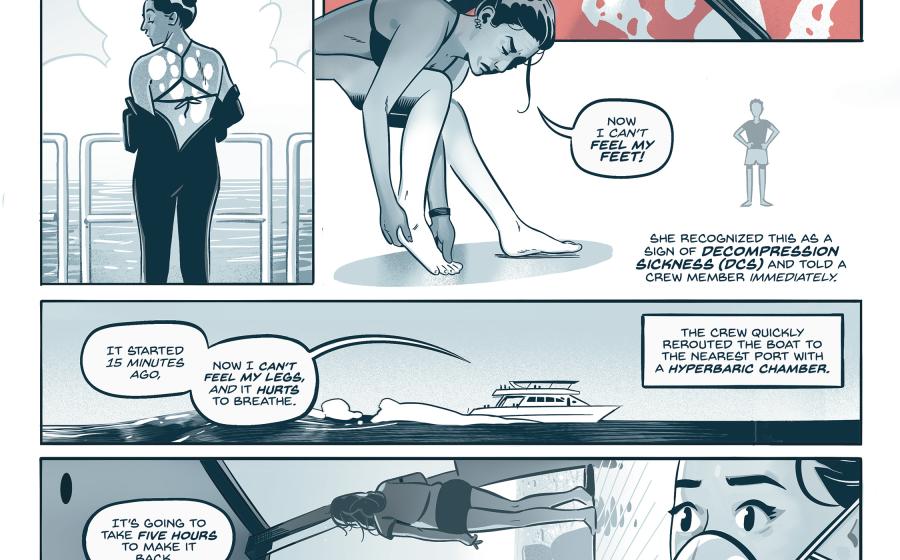5 Tips To Stay Safe On Your Next Dive Trip

1 Get Cleared To Dive If any aspect of your health has changed since your last dive trip, book a checkup. “Encourage your doctor to get on the phone with us” if they’re not familiar with dive safety, says Brian Harper, director of communications for Divers Alert Network. DAN has doctors who are experts in dive medicine and offers doctor consults daily. Another tip: “You’ll want to have been stable on any medications for a month prior to your trip.”
Related Reading: An Unforgettable Dive: A Colorful Caldera
2 Bring Safety Gear If a destination is remote, has currents or allows divers to explore with a buddy and no guide, you’ll want to bring a personal locator beacon. At the very least, you’ll need a surface marker buoy—and the know-how to deploy it at depth. “That does a number of things: It allows the crew of your dive boat to keep tabs on your location and mitigates your risk of being lost or left behind, and it broadcasts your location to other boats, which reduces risks of propeller injuries,” says Harper.
3 Have Your Own Emergency Plan Every dive destination comes with a different set of risks. Research what those might be, and take the time to develop your own emergency action plan, or EAP. “Being an advocate for your own safety can pay dividends in terms of keeping yourself safe,” says Harper. On a liveaboard, for instance, plan how to get from your cabin to the emergency stations—and be able to do it blindfolded. “Chances are, in an emergency, you may not have lights.”
4 Take A Class If you don’t know the first thing about what to do in various emergencies, take a class. Some of the most relevant for divers include the DAN first-aid courses, Oxygen Administrator, CPR, Basic Life Support, and Hazardous Marine Life Injuries. “Becoming proficient in Basic Life Support is especially important if you’re traveling to remote locations and access to hospitals is delayed,” says Harper.
Related Reading: An Unforgettable Dive: More Mantas Please
5 Invest In Peace Of Mind DAN membership and DAN Dive Accident Insurance are two separate purchases. DAN membership covers the transport to a treating facility, and accident insurance covers the cost of medical treatment. Without membership and dive accident insurance, each can cost tens of thousands of dollars.










